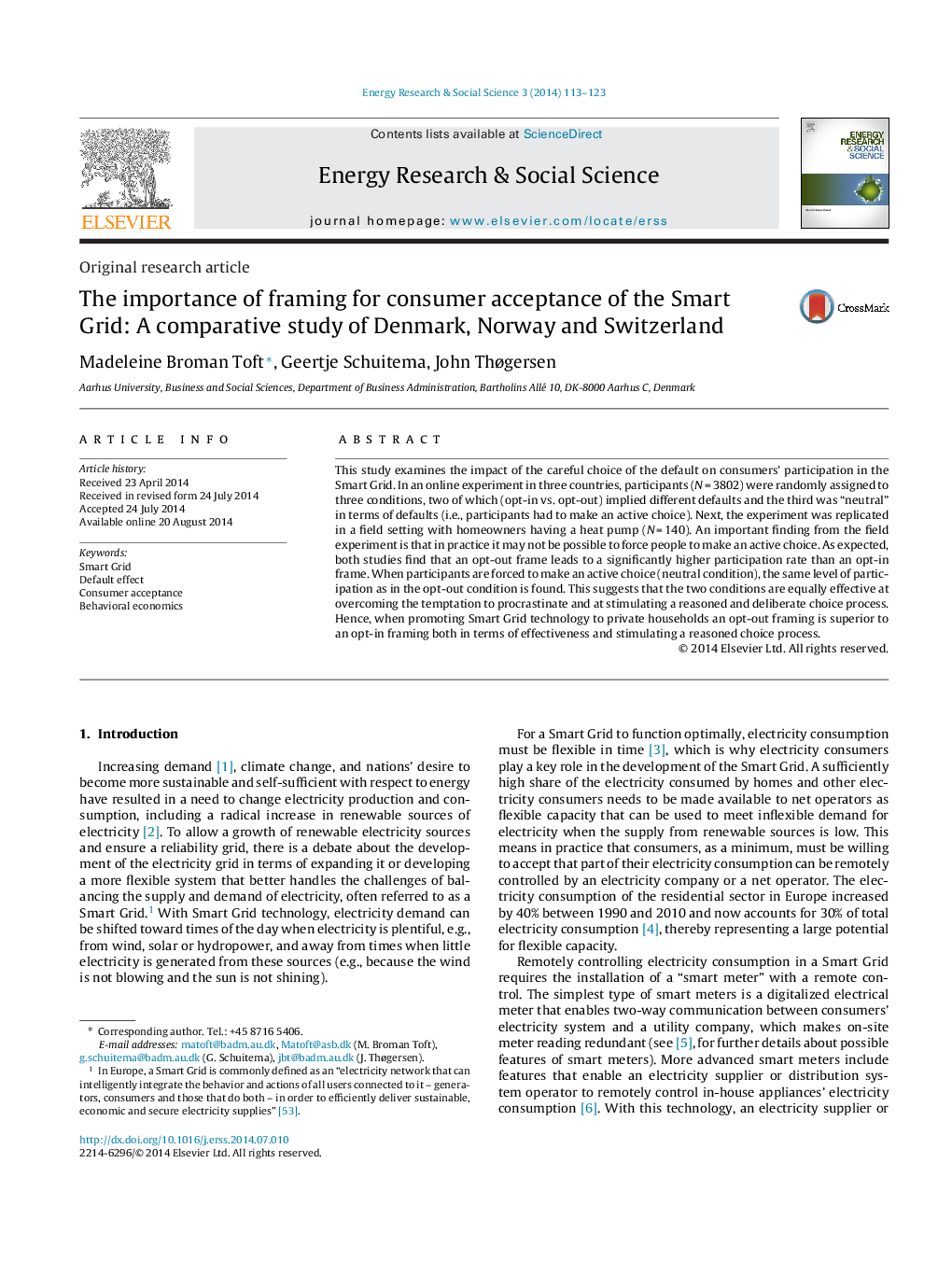| Article ID | Journal | Published Year | Pages | File Type |
|---|---|---|---|---|
| 108179 | Energy Research & Social Science | 2014 | 11 Pages |
This study examines the impact of the careful choice of the default on consumers’ participation in the Smart Grid. In an online experiment in three countries, participants (N = 3802) were randomly assigned to three conditions, two of which (opt-in vs. opt-out) implied different defaults and the third was “neutral” in terms of defaults (i.e., participants had to make an active choice). Next, the experiment was replicated in a field setting with homeowners having a heat pump (N = 140). An important finding from the field experiment is that in practice it may not be possible to force people to make an active choice. As expected, both studies find that an opt-out frame leads to a significantly higher participation rate than an opt-in frame. When participants are forced to make an active choice (neutral condition), the same level of participation as in the opt-out condition is found. This suggests that the two conditions are equally effective at overcoming the temptation to procrastinate and at stimulating a reasoned and deliberate choice process. Hence, when promoting Smart Grid technology to private households an opt-out framing is superior to an opt-in framing both in terms of effectiveness and stimulating a reasoned choice process.
